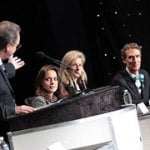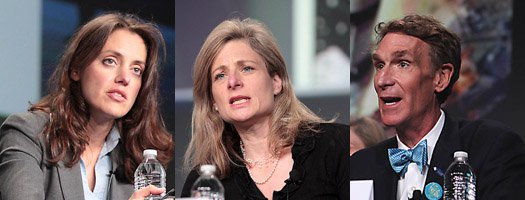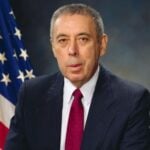Space Foundation News
Scientists Discuss the Future of Space Exploration
Written by: developer
 The Mega Minds – Leading Scientists Discuss the Future of Space Exploration panel brought together some of the brightest and most intriguing intellects in the science world to discuss science and space. Moderated by Dr. G. Scott Hubbard, professor of aeronautics and astronautics, Stanford University, the panel featured:
The Mega Minds – Leading Scientists Discuss the Future of Space Exploration panel brought together some of the brightest and most intriguing intellects in the science world to discuss science and space. Moderated by Dr. G. Scott Hubbard, professor of aeronautics and astronautics, Stanford University, the panel featured:
- Dr. Amy Mainzer, WISE deputy project scientist, Jet Propulsion Laboratory
- Bill Nye, executive director, The Planetary Society
- Dr. Lisa Randall, Frank B. Baird, Jr., professor of science, Harvard University
Following are a few of the questions the panel discussed:
Question: Why study space science?
Mainzer: We learn the most when we study extreme environments, when we look at the boundaries of physics. Some questions can only be solved by space exploration, such as how does Earth work? We can solve issues when we compare with other planets.
Randall: Before the last century, cosmology [Randall’s specialty] wasn’t a science. Things have radically changed over the past 100 years. Discoveries we have made, such as galaxies, the Hubble constant and background cosmic radiation, have changed the way we see space. Interpreting space observations leads us to exotic ideas and ambitious experiments.
Nye: Planetary exploration is inspirational. We all ask the questions “Where did we come from?” and “Are we alone?” We’ve made low earth orbit too routine; we need to look elsewhere. For example, look at Venus where the amount of carbon monoxide in the atmosphere makes it very hot and not so pleasant for humans. But, everyone in this room was alive when the percent of CO2 in our atmosphere went from 0.03 to 0.04… what’s next for Earth?
Question: Does science lead science fiction or vice versa?
Mainzer: Imagination is one key to help create new ideas.
Randall: Sci-fi yields results that we could never have imagined, like quantum mechanics. Sci-fi is important to technology development.
Nye: Every planet that they visit in Star Trek is one people, one culture. We’re living on a world where communication is doing this.
Question: Could we terraform Mars?
Randall: There are a lot of scientific and ethical issues, but it could be a good investment.
Question: How do we address climate change in a critical way?
Nye: There is uncertainty in science, but why would one doubt this? For climate change, take more measurements and eventually we’ll come to a better conclusion; increasing science, technology, engineering and mathematics (STEM) education will help.
Closing thought from Nye: This summer we’re going to have another Mars landing, watch it and think of our human question, “Why explore?”
Closing thought Randall: Technology development like the iPhone is the result of basic research, be mindful of these fundamentals; remember that when the electron was discovered it was thought to be useless, so continue to support basic research.
Closing thought Mainzer: Remember you have the freedom to be wrong, because that’s the way that we learn and explore.
Pictured below: Mainzer, Randall, Nye.



